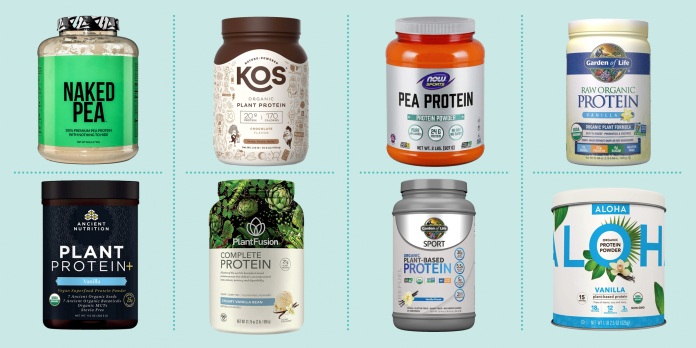The vegetarian or vegan choice is growing, and the supplement market naturally has an interest in satisfying those who have expressed this food choice. Also, for this reason, in recent years, Plant based protein powder vegan protein powder alternatives to soy have begun to be placed on the market and increasingly promoted.
One also wonders what the best vegetable proteins can be or which ones can be more convenient according to a quality/price ratio.
In the article, we will see which are the main port,ein powders on the market to have a clear overview of which to choose, without ignoring recent research results while recent research results on particular results.
Table of Contents
Vegetable proteins and anabolism
The debate on the choice of plant proteins for muscle growth. Focuses on their lower efficiency in promoting these processes. As widely documented in research (2,3,4). Of course. This topic is not limited only to mere muscle mass but also affects different purposes. Such as physical recovery. The performance or the maintenance or recovery. Of lean mass in some particular situations.
Plant proteins are more deficient in essential amino acids (EAA) and leucine. And those present in whole food (i.e., not as a supplement) are also much less. Digestible than those present in animal or animal-derived food (1).
The great advantage of the vegetable protein supplement. Over the whole vegetable, food is that in this way. It is possible to increase significantly the digestibility of proteins (i.e., the rate of digestion and net absorption). Which can reach levels of animal proteins.
Another flaw in plant proteins in supplement form is that they more easily convert to urea than animal (derived from milk) proteins. Urea a waste substance usually produced by protein metabolism. Still, it is produced in more significant quantities in plant proteins, reducing the potential to stimulate muscle protein synthesis (MPS) (1,2,3). This appears to be due to the deficiency of some amino acids, making the amino acid profile less favorable for intestinal protein synthesis. This would lead to amino acids being released through the blood portal to the liver, eventually converted to urea.
But the lower quality of vegetable proteins is not a big problem: the solution is to invest more of it per intake (2,3,4). If, on the one hand, this leads to the need to double the doses (and therefore the expense), on the other, the advantage is that the same anabolic potential can be obtained compared to animal or animal-derived proteins.
Comparison Table Vegetable Protein Powder
| PROTEIN POWDER | % PROTEIN ON 100G | MPS QUANTITY | LIMITING AMINO ACIDS |
| Soybeans isolated | 84-88g | Around 40g | Leucine, methionine, tryptophan |
| Pea isolated | 72-76g | Around 40g | Methionine |
| Brown rice | 75-78g | Around 48g | Methionine, tryptophan |
| Hydrolyzed wheat | Not sold in Italy | Around 45-60g | Lysine,
tryptophan, methionine |
| Lupine | 55-60g | Around 50g | Methionine, tryptophan |
| Oats | Not sold in Italy | There are no studies | Methionine, tryptophan |
| Hemp | 50-56g | Around 100-105g | BCAA, methionine |
in general, in solid foods, cereals are deficient in lysine and tryptophan, while legumes in sulfur amino acids (methionine and cysteine).
Soy protein
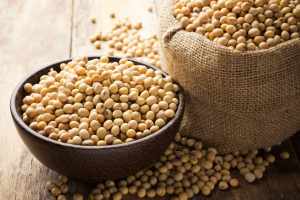
The soy protein probably has the highest quality among the visible proteins, which is why the. For the first, they frequently used plant sources to derive protein supplements. Also, for this reason. Soy proteins can use as a comparative measure to evaluate the quality of other lower-quality vegetable proteins. Soy proteins are primarily available in isolated form. Making them rapidly absorbed, such as whey, various non-micellar caseins. And egg cases.
Despite being classified as high-quality protein, soy protein is shown to stimulate muscle protein synthesis less(MPS) compared to whey protein ( whey ), beef protein, and skim milk. As with other plant proteins, they are less directed towards skeletal muscle and more towards viscera and urea production.
Another defect of soy proteins is represented by the content of isoflavones (phytoestrogens), which, while having potential benefits for postmenopausal women, metabolic diseases, cholesterol, and various types of cancer, can have a potential effect as endocrine disruptors. (5), at least if taken in excessive quantities, the excess is unfortunately not well defined.
Soy proteins are certainly among the leading protein supplements aimed at vegetarians and vegans. Still, the purchase should be carefully considered by those who risk already taking many isoflavones with the diet (primarily through soy or soy-based foods).
Pea protein
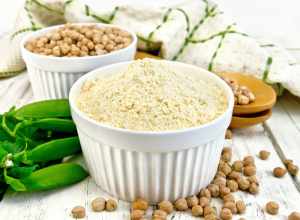
Pea proteins are among the most common alternative supplements to soy, and this probably motivates by their relatively high protein quality. There is little research that has evaluated the long-term anabolic potential of pea protein. Despite having obtaDespite terms of muscle growth, How to gain weight the first study fund by a company producing the first study proteins, and it is no coincidence that it ha. Ital typical limitations that have led some critics to question its credibility.
Despite these controversies, Plant based protein powder pea proteins have a relatively high leucine content, higher than soy and egg proteins, similar to micellar casein. So even if pea proteins have a lower overall protein quality than soy, the concentrations of leucine and essential amino acids are still consistent and similar.
The theoretical optimal dosages of pea proteins to maximize MPS are similar to those required with soy proteins (around 40g net ), making it perhaps one of the most exciting vegetable protein sources from an anabolic perspective.
Rice protein
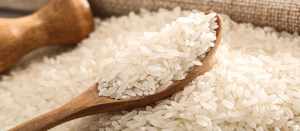
The rice proteins are another of the most popular alternative to soy protein supplements, although lower quality than the pea and soybean. They are usually a medium to slow-absorbing protein, Plant based protein powder as opposed to soy or pea, which are instead of isolation.,
The growing popularity originated from a 2013 study where it was observed that these proteins could stimulate a similar increase in muscle mass compared to the same amount of the more qualitative whey proteins (. Furthermore, rice-derived leucine was found to have particular absorption kinetics, resulting in a faster peak in the blood than whey, despite the latter being more rapidly assimilated.
However, this study also has some limitations for which it is not possible to establish a qualitative equivalence with whey, which remains unlikely. Within these limits, subjects took two scoops at a time (48g) because the rice proteins were too deficient in essential amino acids (and especially leucine) to be able to maximize muscle protein synthesis (MPS) with just one scoop.
This confirms what previously stated: to optimize the MPS if: vegetable proteins must take in quantities about double those of proteins of animal origin (40-50 g vs. 20-25 g). In other words, one measuring cup is not enough to stimulate maximum post-ingestion muscle anabolism.
Wheat protein (wheat): Plant based protein powder
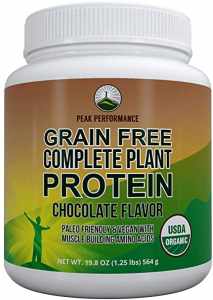
The wheat proteins are starting to be studied in recent years, although their quality does not seem appreciated. Plant based protein powder The essential amino acid content amounts to less than half of high-quality protein sources, while they are notably deficient in lysine, methionine, and leucine. To provide a sufficient amount of leucine in a single meal to optimize muscle protei (MPS), it is estimated that 45g net of p is needed (again, about two scoops).
It is no coincidence that early studies have observed. That wheat proteins stimulate MPS to a lesser extent than caseins. With an identical 35g dose. As in other cases. When the dose near doubled to 60 g. Wheat protein demonstrated a marked increase in MPS.
One of the limitations of this study is that it tested the responses of elderly subjects, which require a more significant presence of essential amino acids and leucine in the meal to maximize MPS. Since younger subjects need less essential amino acids and leucine per meal, 40-45 g per intake may be sufficient.
Lupine protein: Plant based protein powder

The lupine proteins are one of the latest innovations in the field of plant proteins. Like rice and wheat proteins, Plant based protein powder these two do not have a protein quality comparable to soy, given the deficiency of leucine, lysine, and methionine. For this reason, it has been proposed that around 50g net would be needed to optimize muscle protein synthesis (MPS).
Like various other vegetable proteins, those of lupine is not yet well studied to understand their anabolic potential fully; the amino acid profile lacking in various essential amino acids leads to the same conclusions expressed for other vegetable proteins discussed above of wheat or rice. In this case, at least two scoops (50g of net protein ) would be needed to obtain a good stimulation of the MPS.
Oat proteins: Plant based protein powder
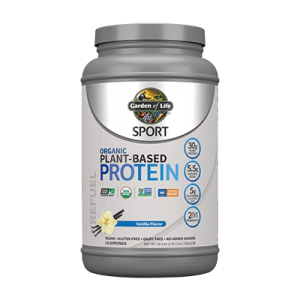
Among the minor and emerging vegetable protein supplements, oat proteins must also be recognized. Like various previous ones, these too have a low content of essential amino acids, particularly lysine, methionine, and leucine. Consequently, even in this case, it estimates that around 50g net need to optimize muscle protein synthesis.
According to some sources. These proteins have slightly higher essential amino acid content. And about twice as much lysine than wheat proteins. Limiting amino acids in wheat and other grains. Other studies note that wheat proteins are only slightly more lysine deficient than wheat. Keto diet recipes While the latter contains quite more leucine. Consequently, there does not appear to be such a clear superiority. Of one protein source over the other in terms of amino acid profile.
Studies on oat proteins are very scarce and of questionable quality. Although positive effects on recovery from training have proposed they have not been compared with other proteins to establish their potential. Consequently, there is no objective evidence or clues to understanding its properties compared to other plant proteins.
Hemp protein: Plant based protein powder
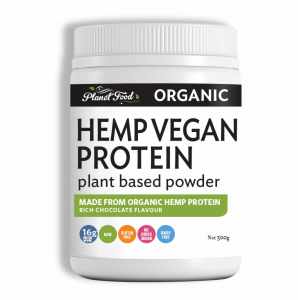
Hemp protein is among the various protein supplements popularize in recent years. Their essential amino acid content is low at levels similar to wheat, lupine, or oat proteins and low in methionine and leucine. Furthermore, they have not yet test for their potential in physical activity.
A defect that concerns this protein source, in particular, is the much lower protein percentage compared to other vegetable proteins, so it would be necessary to take large quantities to obtain a significant supply of essential amino acids. Hemp proteins generally have a relatively high amount of dietary fiber. Carbohydrates and fats. To the detriment of the and fats to the protein fraction’s detrimental to take as much as 105g at one time to obtain sufficient amounts of leucine to maximize muscle protein synthesis (MPS). Although these can be overestimated, Plant based protein powder it certainly is a practical and economic disadvantage if you intend to choose a vegetable protein to influence muscle anabolism positively.
A recurring question is whether hemp proteins contain the active ingredient responsible for the psychoactive and therapeutic effect, Best meal replacement shakes THC (tetrahydrocannabinol). Of course, this component is present in insignificant quantities, so it cannot impart its typical properties.
Vegetable proteins = organic proteins?
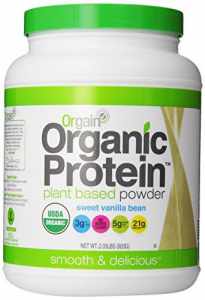
In the growing market for protein supplements. Some products sell under the name of “organic protein,” which translates as “organic protein” ( organic = organic).
Organic food refers to that category of food produced without pesticides. Synthetic fertilizers. Sewage sludge. Genetically modified organisms (GMOs). Or ionic radiation.
The term organic or bio thus associate with vegan or vegetable proteins. However, this association is incorrect because the concept of organic also applies to animal or animal-derived foods. So organic protein is not synonymous with vegetable or vegan proteins. And vice versa. Although often the protein products in which the word “organic” or “bio” appears are most often vegetable.
